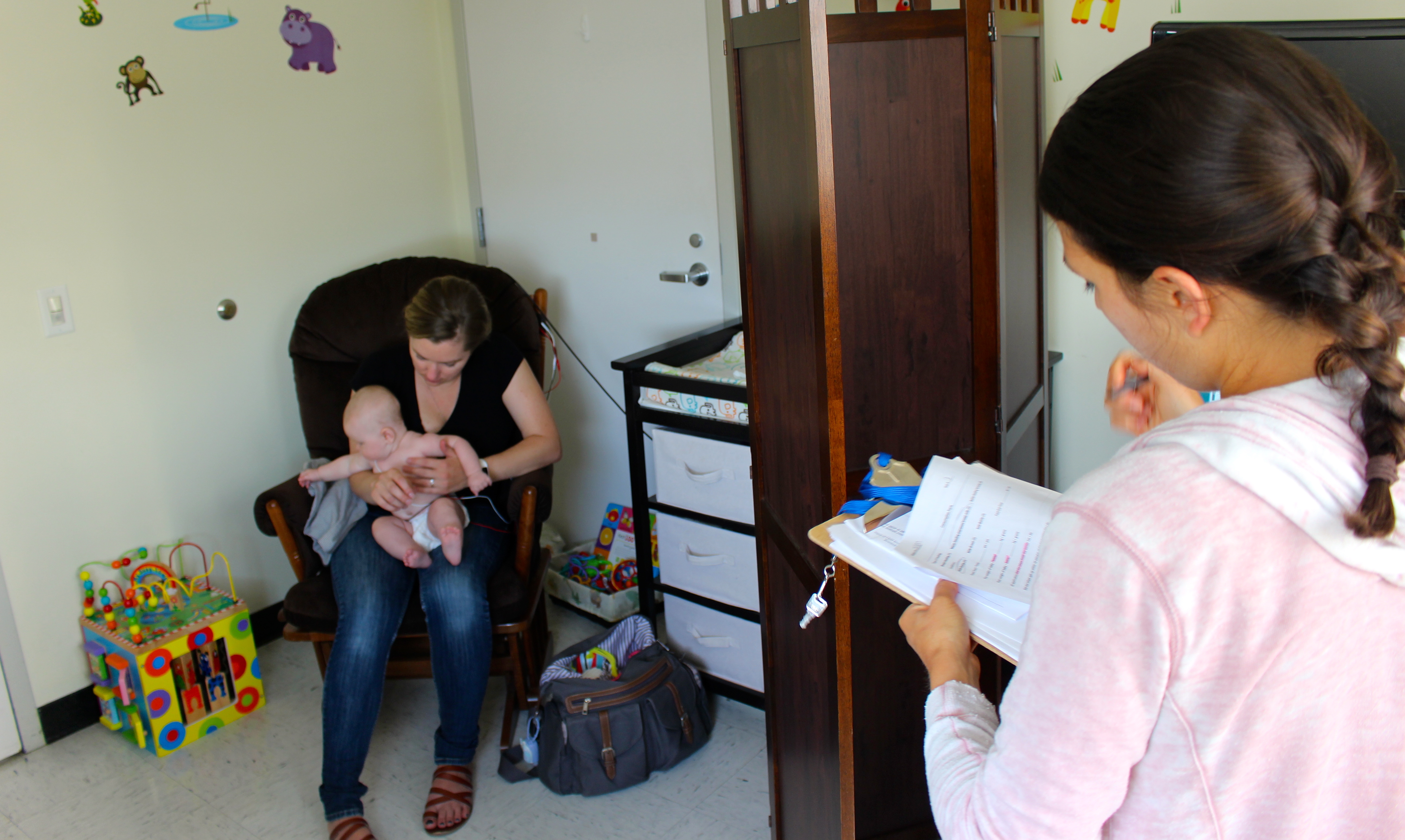An Interview with Jennifer Maxwell, STRIDE Benefactor and Co-Founder of PowerBar
May 2014
 From left: Kinesiology Department Chair Kevin Taylor; STRIDE benefactor and co-founder of PowerBar, Jennifer Maxwell; STRIDE Community Liaison Stephanie Teaford; STRIDE Director Aydin Nazmi.
From left: Kinesiology Department Chair Kevin Taylor; STRIDE benefactor and co-founder of PowerBar, Jennifer Maxwell; STRIDE Community Liaison Stephanie Teaford; STRIDE Director Aydin Nazmi.
Jennifer Maxwell, nutritionist, mother, athlete and co-founder of PowerBar, has contributed immensely to STRIDE’s success and growth over the years. Thanks to her support, we are able to continually impact our community and accomplish meaningful research. In this interview she gives us some insight into how to make a positive impact in communities and her transformative role within STRIDE.
Which aspects of STRIDE’s work attracted your interest?
STRIDE originally piqued my interest because I saw it as an opportunity to work collaboratively to create solutions for maternal and child health. As a mom with six kids and as an athlete, I have both experience and interest in the benefits of an active lifestyle for mothers.
STRIDE has become a recognized university center and is building on its student and faculty collaborations with departments such as architecture, business, engineering and social sciences. How do you think this change will contribute to STRIDE’s obesity prevention efforts?
The collaborative aspect of STRIDE makes it impactful. Teamwork leads to thinking outside the box. For STRIDE’s collaborators, working together helps people from different areas of expertise realize how their areas of expertise affect others. Overall, increased diversity benefits society as a whole. Collaborations such as STRIDE’s will lead to a more well-rounded world.
What STRIDE does especially well is work with students, too. Skills learned in collaboration are always positive, and they really set Cal Poly students up for success by preparing them for employment opportunities, whether in teaching, nutrition or agriculture.
A critical component of STRIDE’s work has been its connection to the community. How important is that community connection to you as a supporter?
The community aspect of STRIDE is critical. For any effort to solve a large problem like obesity — which is mind-bogglingly large — without the community being involved, any impact will be small. STRIDE’s challenge is not just to involve Cal Poly but to create momentum that spikes interest, which will drive forward more momentum. When people in the community see tangible results, their interest is sparked. It requires a whole community to keep the momentum.
When you hear that your support of STRIDE goes toward school outreach programs, giving students hands-on experience in their major, and expanding health education programs to a nationwide audience, how do you feel that you've been a part of those accomplishments?
My original involvement with STRIDE was to provide the seed money for STRIDE to be built. My background in sports and as a mom, as well as the PowerBar connection, led me to seek a broader audience. STRIDE’s Pink and Dude Chefs are somewhat similar to Coaching Corps, a great program that teaches food awareness and preparation. This is so valuable because with many healthy foods, until you try them, and try them prepared well, you have no idea how good they can be.
There is a wonderful environment at Cal Poly. The Learn by Doing and hands-on approach really lead to a culture in which people follow through on their initiatives and students are well-educated and knowledgeable.



